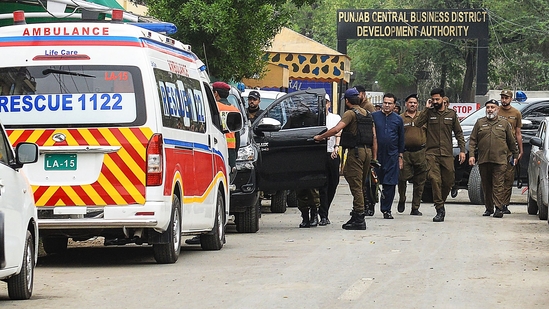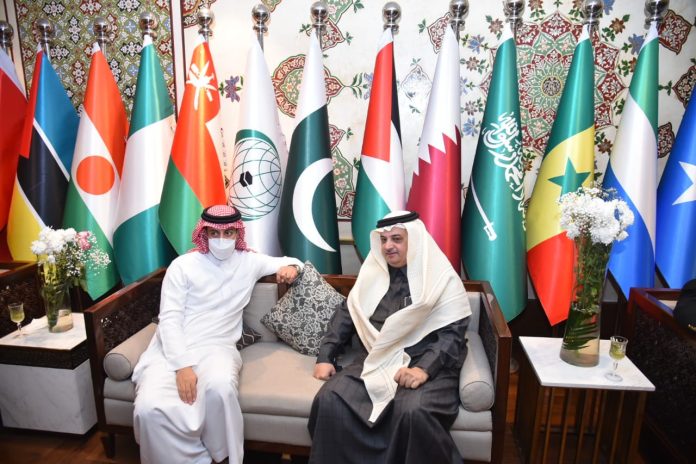In a Visit to Delhi swift and unexpected diplomatic development, Saudi Arabia’s Minister of State for Foreign Affairs, Adel al-Jubeir, arrived in New Delhi just hours after India launched “Operation Sindoor,” a strategic military campaign targeting terrorist infrastructure inside Pakistan and Pakistan-administered Kashmir.
Al-Jubeir met with Indian External Affairs Minister Dr. S. Jaishankar, amid rising tensions in South Asia, as India responded to the recent deadly terror attack in Pahalgam, Jammu and Kashmir. The visit is being interpreted by many foreign policy analysts as a calculated move by Riyadh to play the role of a mediator in what could become a serious escalation between two nuclear-armed neighbours.
India Responds With Operation Sindoor
On May 7, 2025, the Indian Armed Forces carried out precision strikes against at least nine terrorist hideouts and training camps believed to be operated by Pakistan-based terror groups such as Jaish-e-Mohammad and Lashkar-e-Taiba. These targets were identified in parts of Pakistan-occupied Kashmir and close to the international border, based on intelligence inputs following the April 22 Pahalgam attack.
That attack, which left 26 civilians and security personnel dead, was widely condemned across the globe. India has maintained that the attack was orchestrated by militants backed by Pakistani intelligence agencies.

In response, Operation Sindoor was launched in the early hours of the morning in what Indian defence sources described as a “measured and precise” military action. Indian fighter jets, drones, and ground-based missiles were reportedly used in the operation. While Pakistan has denied the scale of the damage, satellite imagery and regional reports suggest that significant infrastructure linked to terror networks was destroyed.
India Warns of “Very Firm Response”
Speaking at a press briefing, External Affairs Minister S. Jaishankar made it clear that India does not seek war, but will not tolerate any form of cross-border terrorism.
“It is not our intention to escalate the situation. However, if there are military attacks on us or if terrorism continues to be used as an instrument of state policy, there should be no doubt that it will be met with a very, very firm response,” he said.
He also reiterated that India had shared intelligence with key international partners, making a strong case for coordinated global efforts to dismantle terrorist safe havens in South Asia.
Defence Minister Rajnath Singh also assured the public that India’s armed forces are fully alert and prepared for any potential retaliation or conflict scenario.
Saudi Arabia Steps In Diplomatically
In a development that caught many by surprise, Saudi Minister Adel al-Jubeir landed in New Delhi late Thursday evening. His arrival came without any prior public announcement, suggesting urgency and sensitivity. The visit lasted just a few hours, during which he met with Jaishankar and key Indian officials in South Block, the seat of India’s foreign policy operations.
Though official statements after the meeting were brief, sources familiar with the discussions revealed that the focus was on regional security, the rising threat of terrorism, and the importance of maintaining peace between India and Pakistan. Al-Jubeir reportedly expressed solidarity with India’s concerns about terrorism and conveyed that Saudi Arabia supports peaceful dialogue over violent confrontation.
His visit is being viewed in diplomatic circles as part of Riyadh’s larger strategy to balance its relationships with both New Delhi and Islamabad. Saudi Arabia has strong economic and religious ties with Pakistan, but in recent years, it has also grown closer to India through investments, energy partnerships, and shared concerns over terrorism.
Iran Also Joins the Diplomatic Push
Interestingly, Al-Jubeir was not the only foreign envoy to arrive in Delhi this week. Iran’s Deputy Foreign Minister Seyed Abbas Araghchi also visited New Delhi around the same time. Though details of his meetings remain largely confidential, his presence underlines how key regional players are taking active interest in preventing a full-blown conflict.
Iran and Saudi Arabia, despite their historical rivalry, appear to be aligning diplomatically to reduce tensions between India and Pakistan—two major players whose conflict could have serious global repercussions.
Global Reactions and Urgent Diplomacy
The recent escalation has drawn the attention of the international community. Countries including the United States, the United Kingdom, Russia, and China have urged both India and Pakistan to exercise restraint and seek diplomatic solutions. The United Nations Secretary-General issued a statement calling for “maximum restraint” and encouraging both countries to open communication channels.
Behind the scenes, diplomatic sources have hinted that back-channel talks between India and Pakistan may already be underway. These talks are believed to involve national security advisers and are aimed at avoiding a repeat of the 2019 Balakot-style standoff, which saw air strikes and aerial dogfights between the two countries.
India, however, remains firm that it will not engage in formal talks unless Pakistan takes visible and verifiable actions against terrorist groups operating from its soil.
Why This Visit Matters
Adel al-Jubeir’s sudden arrival in Delhi underscores Saudi Arabia’s growing role in South Asian geopolitics. While traditionally seen as more aligned with Pakistan, Saudi Arabia in recent years has sought to diversify its diplomatic influence, especially in Asia.
India, with its vast energy needs, huge diaspora in the Gulf, and rising economic clout, has become a key partner for Riyadh. Saudi Arabia is also a member of the Organisation of Islamic Cooperation (OIC), which has at times taken positions critical of India’s policies in Kashmir. Al-Jubeir’s visit sends a strong signal that Riyadh may be looking to play a more neutral, peace-making role in the current crisis.
The Road Ahead
As tensions remain high along the Line of Control and in diplomatic corridors, efforts to de-escalate will require patience, firm diplomacy, and responsible leadership on all sides. India’s response through Operation Sindoor has made it clear that it will not tolerate terrorism. At the same time, by welcoming diplomatic channels—such as the Saudi visit—it is signaling that it remains open to peace, provided there is accountability and action.
With both Saudi Arabia and Iran stepping into the fray, the coming days may see increased engagement, either publicly or behind closed doors. For now, the world watches as two of Asia’s most powerful nations navigate yet another crisis, with the hope that restraint and dialogue will win over violence.
Sultan Haitham Leads Oman’s Grand Festival Celebrating 5 Years of Renaissance



